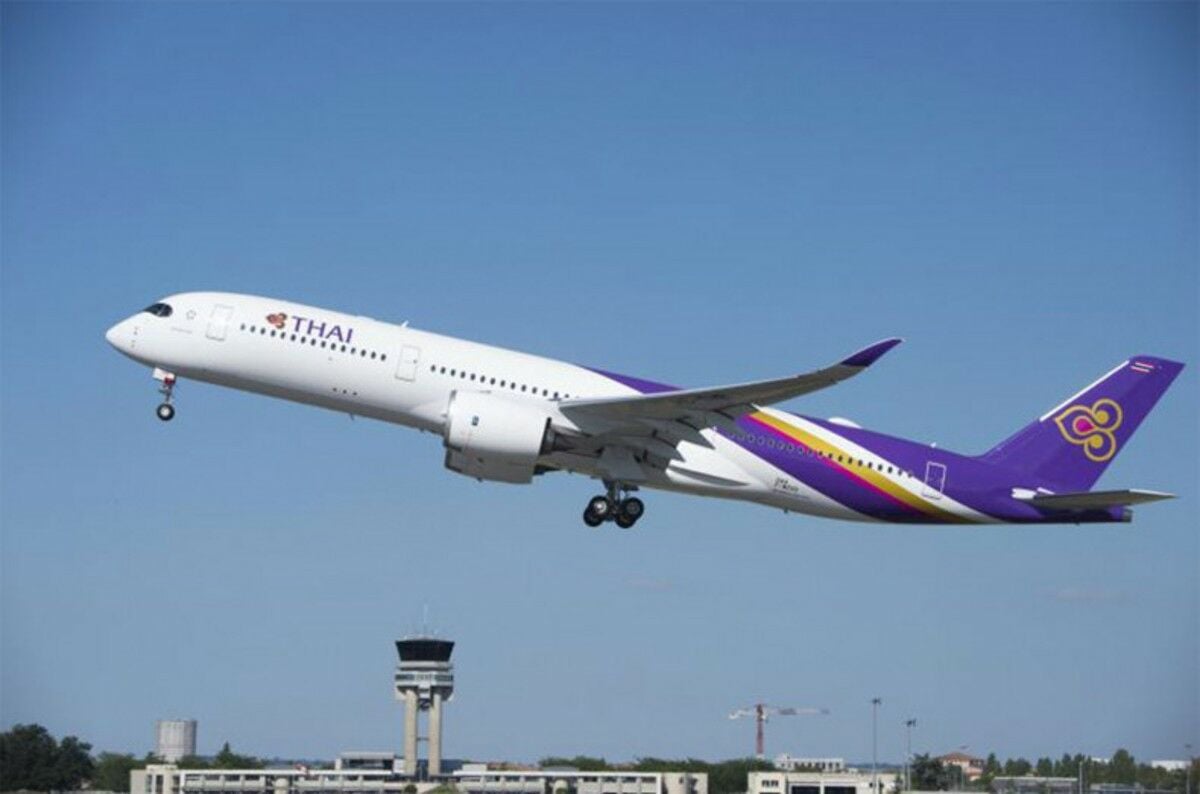Thai Airways’ Airbus A350s remain unaffected by engine issues

Thai Airways International (THAI) continues to operate its fleet of Airbus A350s without any detected engine issues, affirmed THAI President Chai Eamsiri. This statement follows the disruption experienced by Cathay Pacific due to faulty engines on the same aircraft model.
Chai confirmed that THAI’s Airbus A350s undergo regular inspections and maintenance, ensuring the fleet’s smooth operation.
“No faulty engine has been found yet, and the fleet is operating without a hitch.”
This assurance came as Cathay Pacific Airways cancelled nearly all its scheduled flights from Hong Kong to Singapore yesterday, along with several other services across Asia, due to a faulty engine component found on some of its Airbus A350s.
Cathay Pacific’s website indicated that eight out of nine scheduled Hong Kong-Singapore flights were cancelled. The only flight due to depart as of mid-morning yesterday was an afternoon connection on a Boeing 777.
In addition to the Singapore route, nearly half of Cathay’s services from Hong Kong to Bangkok and Tokyo’s Narita airport were cancelled yesterday. The airline confirmed that none of the remaining flights were operated using an A350. Cathay Pacific announced that 48 individual flights, including return legs, were cancelled.
The issue was identified when a Cathay Pacific A350 was forced to return from a flight originally bound for Zurich on Monday. The Hong Kong-based airline, one of the world’s largest operators of the long-haul A350, discovered the component failure during this incident, reported Bangkok Post.
In related news, the Civil Aviation Authority of Thailand (CAAT) has clarified the case where a pilot exposed aircraft mechanics using fake and expired parts for maintenance, causing concern that it could be life-threatening.
In other news, the worldwide aircraft shortage has led to a delay in the launch of Really Cool Airlines in Thailand. The airline, headed by chief executive Patee Sarasin, is finalising a lease agreement for two Airbus A330 aircraft, with delivery now expected by the end of this year rather than the initially planned first half.
Latest Thailand News
Follow The Thaiger on Google News:


























